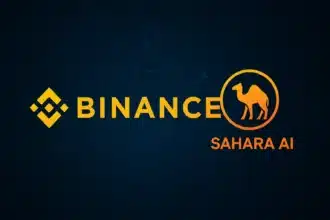The heightened excitement surrounding DeFi on the Bitcoin blockchain became apparent on Tuesday, as the Bitcoin staking platform Babylon successfully raised $1.5 billion in Bitcoin. Cap-2, a round named after the maximum number of tokens that we could deploy, briefly opened for additional deposits, which is what the platform describes as a new way of providing Bitcoin’s secure mix among those who deploy and offer other decentralized applications and protocols.
This round took about 1 hour and 5 minutes, and users showed high interest in taking advantage of stake deposits within 10 Bitcoin blocks. The scale of deposits, however, exceeded their projections, said co-founder David Tse, a professor of engineering at Stanford University. Tse added that the inflows were way beyond our expectations.

Bitcoin Blockchain Expands with Babylon’s DeFi Role
In this role, Babylon is now striving to play a crucial role in bringing utility to the 15-year-old Bitcoin blockchain, which people have traditionally used as a store of value rather than a system of decentralized finance. Currently, Ethereum and Solana, the two blockchains with their own staking systems and smart contract support, are the only platforms on which many DeFi apps can operate.
The successful fundraising indicates that users are prepared to utilize Bitcoin in DeFi, a rapidly expanding segment of the DeFi environment across various blockchains. The staking opportunity that Babylon relishes in is the ungodly reserves in BTC that are capitalized on by letting participants stake BTC and bringing Bitcoin’s security model into play in proof-of-stake chains.
On Tuesday, 18,601 BTC had already been staked according to the Babylon staking dashboard, and 5,419 BTC was waiting for proof for a combined 23,020 BTC. However, Babylon’s Cap-2 event, which set the cap at 1,000 BTC and took only one hour and 14 minutes to complete, did not occur during its August opening.
This time, there was a cap of 10 Bitcoin blocks, and everything was up for sale from 30 minutes to 23 minutes. You get it whether you like it or not. But even so, the platform limits any given user to a maximum of 500 BTC per transaction. The platform attracted numerous people who were interested in many transactions within each block.
Babylon bridges Bitcoin with Broader Blockchain Ecosystems
The design accommodates larger participants while mediating risk within this duration-based staking round. By making it easier for a broader audience to access the considerable capital reserves held in BTC, Babylon aims to bridge the divide between BTC and other blockchain networks with more complex ecosystems, while Bitcoin SEED also aims to boost broader adoption through the ability of proof-of-stake protocols to utilize the BTC infrastructure.
The move is part of a bigger plan to use Bitcoin’s full potential for decentralized banking. BTC has been much more popular on networks like Ethereum. BTC, on the other hand, hasn’t come as far as Ethereum when it comes to smart contracts yet. This is what lets Ethereum offer more dynamic apps like DeFi. With Babylon, they aims to transform this situation by providing a staking and value-adding infrastructure that goes beyond the traditional store of value narrative associated with BTC.

In May, it raised $70 million, kicking off with an $18 million round in December last year. The proceeds of these funds helped Babylon develop its staking platform, and the $1.5 billion raised in this most recent round is a strong indicator that interest in BTC DeFi applications is on the rise.
This significant BTC flow into Babylon suggests that BTC may play a bigger role in the DeFi landscape than previously believed. More platforms, including Babylon, now allow the use of BTC. The expansion into staking opportunities and a broader range of DeFi integration of BTC further highlight that the future for BTC and the blockchain ecosystem at large is expanding into a more diverse future.
Conclusion
Bitcoin’s recent success in Babylon underlines its greater future promise in decentralized finance. The platform is simply bridging traditional Bitcoin usage to emerging DeFi applications by facilitating BTC staking. Beyond its canonical role as the store of value that Bitcoin presents, as platforms such as Babylon mature, the spread of Bitcoin could see it take on other varieties of roles in the evolving blockchain ecosystem.
Stay updated with TheBit Journal by following us on Twitter and LinkedIn and joining our Telegram channel.





























